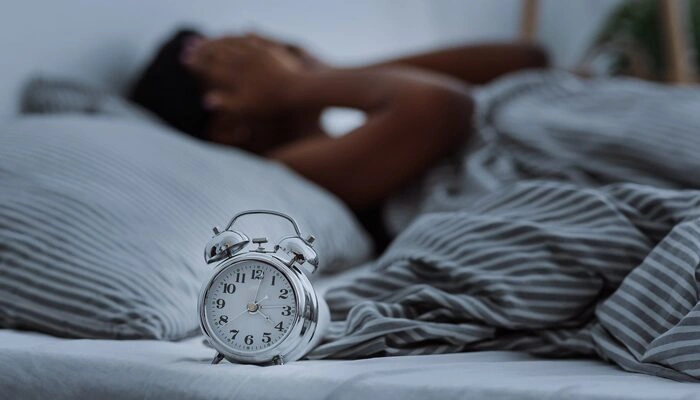
It’s 11:30 p.m., and I’m lying in bed, staring at the ceiling. I’ve scrolled through my phone for the past hour, telling myself I’d put it down “just after this last post.” My body feels heavy with exhaustion, but my mind won’t stop racing—replaying the day, planning tomorrow, or diving into random, irrelevant thoughts. Finally, I turn off the light, only to toss and turn, unable to drift into sleep.
Morning comes all too quickly. My alarm blares, and I groggily hit snooze, pulling the covers over my head. When I finally drag myself out of bed, I feel like I’ve run a marathon in my sleep—or worse, like I haven’t slept at all. Coffee becomes my savior, even though I know it’s a temporary fix.
This cycle—struggling to sleep at night and waking up in the morning—is all too familiar to me. But why does it happen? What is it about sleep that feels so elusive, and why is getting out of bed such a monumental task? I started digging into the science behind these struggles, and what I learned completely shifted my perspective.
Read More: Sheheryar Munawar, Maheen Siddiqui’s Wedding Festivities in Full Swing
The Internal Tug-of-War
One of the biggest culprits behind my sleep troubles is my circadian rhythm—an internal clock that governs my sleep-wake cycle. This clock is highly sensitive to light and dark, which are supposed to signal when it’s time to sleep or wake up. The problem? My modern lifestyle often overrides these natural cues.
Take my phone, for example. Its blue light tricks my brain into thinking it’s still daytime. Research from Harvard Medical School shows that this kind of light suppresses melatonin, the hormone that makes us feel sleepy. No wonder I have trouble falling asleep after doomscrolling through my favorite apps.
Adding to the chaos is my inconsistent sleep schedule. A study in Sleep Health explains that irregular bedtimes confuse the body’s circadian clock, making it harder to fall asleep at night and even harder to wake up refreshed in the morning.
Sleep Pressure
Another piece of the puzzle is something called sleep pressure. Throughout the day, my brain builds up adenosine, a chemical that makes me feel sleepy as it accumulates. Ideally, this sleep pressure helps me fall asleep quickly and naturally at the end of the day.
But here’s where I sabotage myself: caffeine. I often drink coffee in the late afternoon to get through work, unaware that it blocks adenosine receptors. A study in the Journal of Clinical Sleep Medicine shows that even caffeine consumed six hours before bedtime can mess with sleep. No wonder I find myself lying awake long after I should be asleep.
And then there’s stress—my constant companion. When I lie in bed replaying every awkward conversation or missed deadline, my stress hormone, cortisol, spikes. High cortisol levels interfere with melatonin, as noted by the American Psychological Association. It’s like my brain is doing everything it can to keep me awake.
The Morning Fog
If falling asleep is a challenge, waking up feels like climbing Mount Everest. This grogginess is called sleep inertia, and it happens because I often wake up during deep sleep or REM sleep. According to the Journal of Biological Rhythms, sleep inertia is worse when we don’t get enough rest or when our alarm jars us awake abruptly.
My dark bedroom doesn’t help either. Without natural light in the morning, my brain doesn’t get the signal to stop producing melatonin and start waking up. Instead, I linger in a half-awake state, wishing I could hit “snooze” on life itself.
Breaking the Cycle: My Personal Plan
Recognizing these patterns was the first step in changing them. Here’s what I’ve started doing to improve my sleep—and maybe it can help you too:
- Set a consistent schedule: I’ve committed to going to bed and waking up at the same time every day, even on weekends. It’s tough, but it’s working.
- Limit screen time: I now turn off my devices at least an hour before bed and use a book or soothing music to wind down instead.
- Create a sleep-friendly environment: My room is dark, quiet, and cool—a perfect cocoon.
- Practice relaxation: I’ve started meditating for a few minutes before bed, which helps calm my racing thoughts.
- Avoid late-day caffeine: This one hurts, but I’ve switched to herbal tea after 2 p.m. My future self thanks me every morning.
- Embrace morning light: As soon as I wake up, I open my curtains or step outside to help reset my internal clock.
The Journey Toward Better Sleep
My relationship with sleep is still a work in progress, but I’m beginning to understand how much control I actually have over it. Sleep isn’t just about closing my eyes and hoping for the best—it’s about creating the right conditions for my body and mind to rest and recharge.
If you’re like me—struggling with sleep at night and mornings that feel impossible—know that you’re not alone. With small, consistent changes, it’s possible to break the cycle. Tonight, as I prepare for bed, I’ll remind myself that restful sleep is within reach. And tomorrow? It’ll be a little brighter.
Follow Day News on Google News, Instagram, YouTube, Facebook, Whats App, and TikTok for latest updates
















